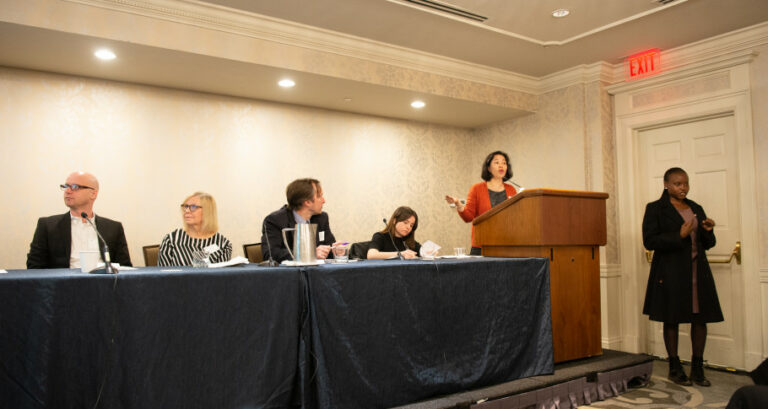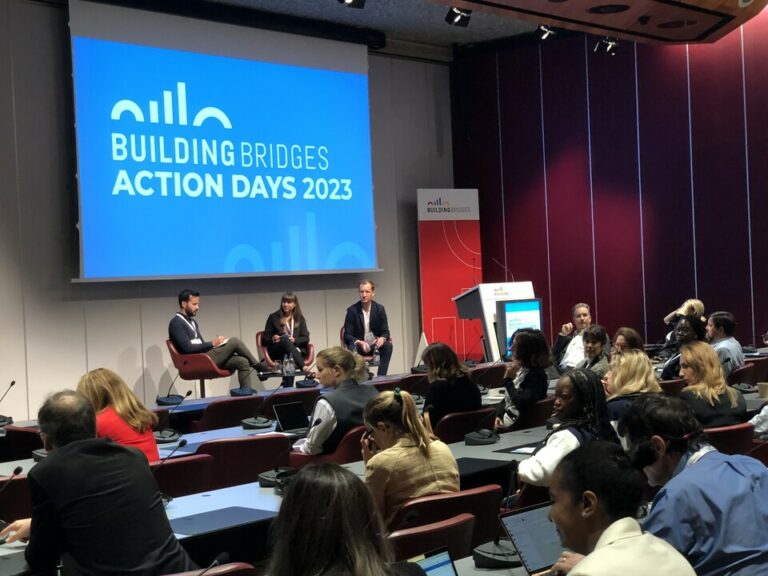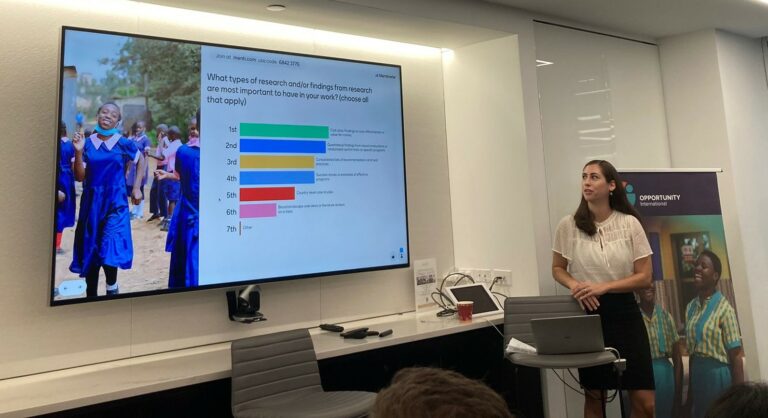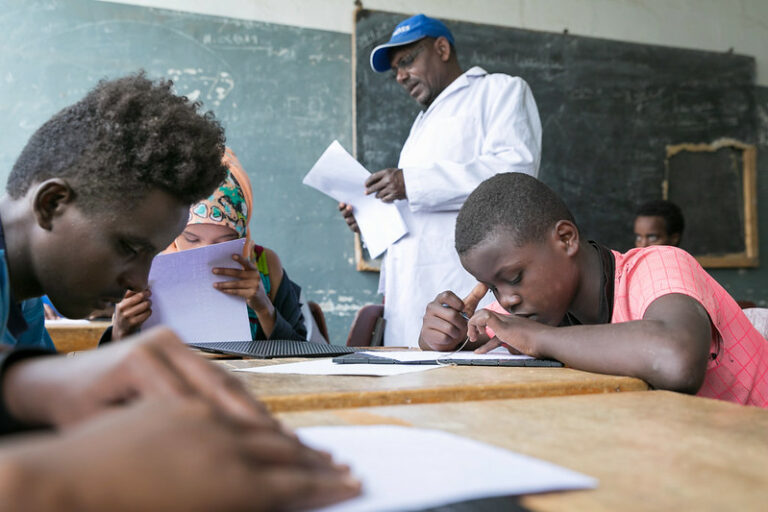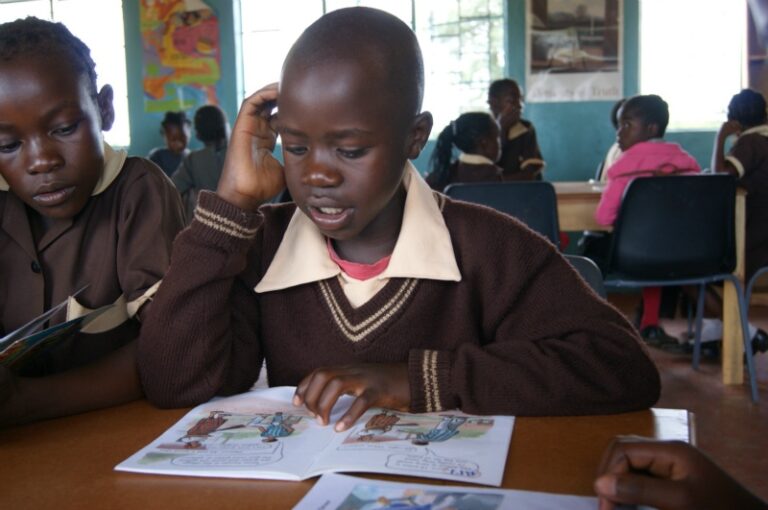The education marketplace bringing innovation to public education systems in East Africa
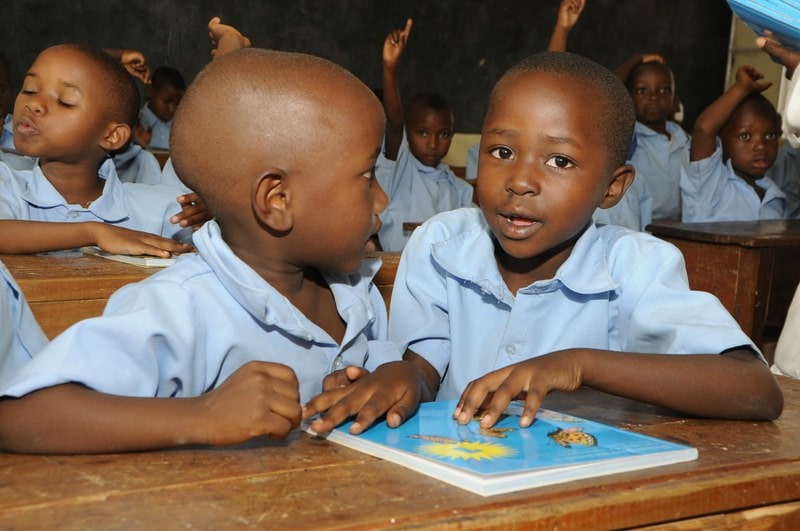
At the recent USAID Global Education Conference in Washington D.C., the Education Finance Network hosted a panel session centering on a question many in the education community are asking themselves: how do we bring innovation from private actors into public systems with the intention of going to scale?
The focus of the session was the pioneering Elimu-Soko initiative, which was piloted in Rwanda in a collaboration between Hempel Foundation and the Government of Rwanda in 2022-2023. Elimu-Soko is an ‘education marketplace’ for innovations, aiming to test and develop cost-effective and scalable education interventions with a proven potential for impact at scale.
The session was led by Dalberg Advisors, who designed and managed the strategy of the Rwanda pilot, and Rising Academy Network, who were selected through a competitive process to implement the pilot.
How to launch education innovations with an explicit intention of going to scale
Despite the abundance of education innovations in low- and middle-income countries, many struggle to expand to a larger scale. With its explicit intention of generating a scalable model, the lessons learned from the design and implementation of the Elimu-Soko pilot point to three key considerations that are critical to successfully launch innovations with a view to scale.
1. Government-centric approach
Unlike traditional interventions that often suggest predefined solutions, Elimu-Soko operates on the principle that interventions must align with the government’s specific priorities. To achieve this, Dalberg Advisors conducted a comprehensive analysis to identify the precise challenges within Rwanda’s education systems and, on this basis, pinpoint an effective solution. The analysis uncovered that a major obstacle to foundational learning in Rwanda was the insufficient skills of basic education teachers, leading to the recommendation of teacher training as the proposed solution.
2. Scalability from inception
Dalberg Advisors collaborated with Hempel Foundation and the Rwandan government to ensure the groundwork was laid for future expansion. The following three aspects of the design were critical to this goal:
Sustainable cost: As part of the selection process, Rising Academies was asked to model what the cost of implementing their intervention would be at a nationwide scale. This ensured that the design of the solution used tech-enabled data collection to allow for teacher engagement and support at a sustainable cost.
Establishing clear parameters of success: An example of this is how the Rising Academies team analyzes multimedia reports from teachers to monitor the implementation of Communities of Practice and provide ongoing support to schools. The parameters for success included both measures of teachers’ knowledge and self-confidence, as well as improvements in reading and math scores for lower primary students.
Government commitment: A Memorandum of Understanding was signed between Hempel Foundation and the Rwandan government before the start of the pilot, whereby the government committed resources to support the coordination and implementation of the pilot.
3. Performance management
With a short 6-month pilot, the consortium prioritized robust performance management. Partnering with Brink and Three Stones International, LLC to focus on Monitoring, Evaluation, and Learning (MEL), they established feedback loops to swiftly address challenges, ensuring progress towards improved literacy and numeracy.
The 6-month pilot had 3 sprints within it and during each sprint the MEL partner collected data that fed back into improvements for the following sprint. For example, teacher interviews during Sprint 1 informed the focus of the refresher training in Sprint 2. Feedback from teachers also led the Rising Academies team to supply schools with low-cost wireless speakers that enabled groups of teachers to watch videos of teacher practice together with adequate volume.
Results from the Rwanda pilot
Forty primary schools took part in the intervention, with half of the schools focusing on improved literacy and the other half focusing on numeracy. Across the pilot schools, Rising Academies worked with approximately 18,000 students, 260 teachers, 40 school leaders, 30 Sector Education Inspectors, and seven District Education Officers.
After the pilot was completed, assessments showed that the pedagogical knowledge of teachers taking part in math interventions increased from 48 percent to 64 percent and that of teachers participating in reading interventions increased from 33 percent to 39 percent.
Assessments of student learning, which compared results of treatment classes with control classes, showed math proficiency rates that were 11 percentage points higher at proficiency level 2, 12 percentage points higher at level 3, and 8 percentage points higher at level 4. Reading proficiency rates were 25 percentage points higher than those in the control group at Letter level, 21 percentage points higher at the CVC level, and 10 percentage points higher at Word level.
In conclusion, the pilot demonstrated significant improvements in both teacher pedagogical knowledge and student learning outcomes, affirming the efficacy of the intervention.
What’s next for Elimu-Soko in Rwanda?
Rising Academies remains committed to implementing Elimu-Soko across the forty pilot schools, extending its efforts beyond the initial pilot phase. In close collaboration with the Rwandan government, they are deepening their intervention by identifying strong role models within the education system and providing them with additional training and support. These role models are key to embedding the impact within the initial pilot schools and enable its nationwide scale-up.
Expansion plans for Elimu-Soko in Rwanda are currently under consideration. Already, the program has generated valuable lessons in how to design and implement innovations intended for scale-up within government education systems. These lessons underscore the necessity for solutions to align closely with government priorities, designing with scalability in mind, and establishing effective performance management systems. By prioritizing these elements, educational initiatives like Elimu-Soko not only demonstrate efficacy but also pave the path for broader adoption within government education systems, thereby catalyzing enduring and widespread impact across East Africa and beyond.
